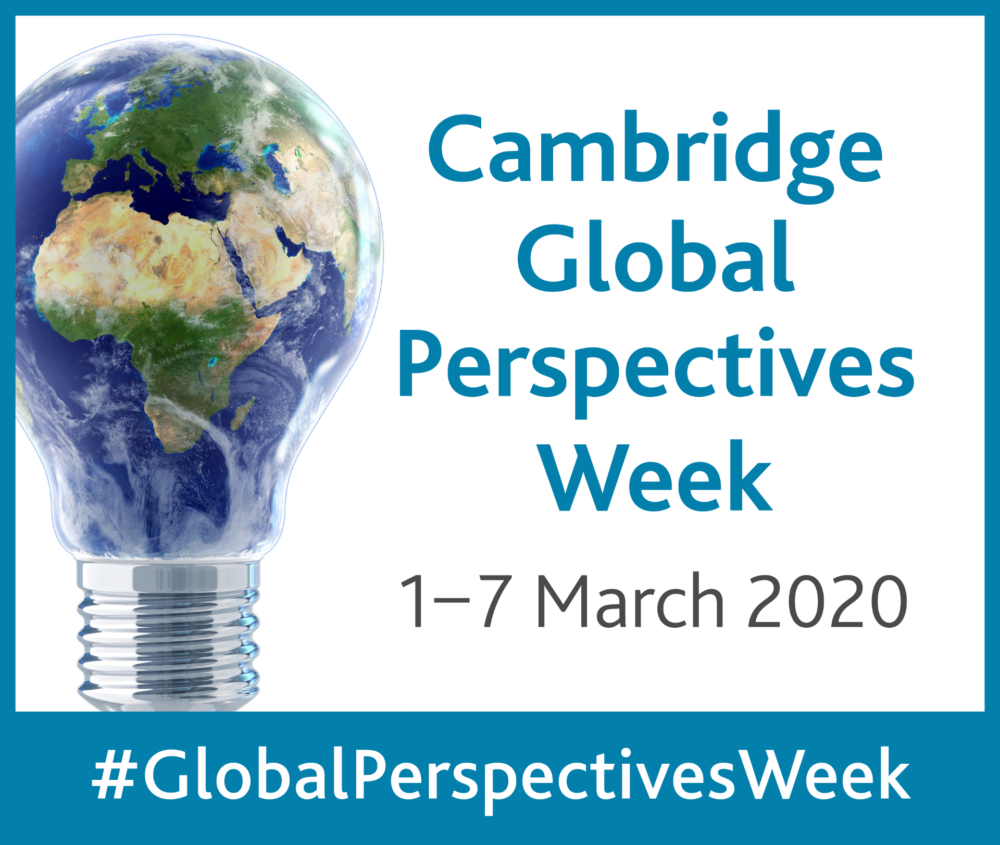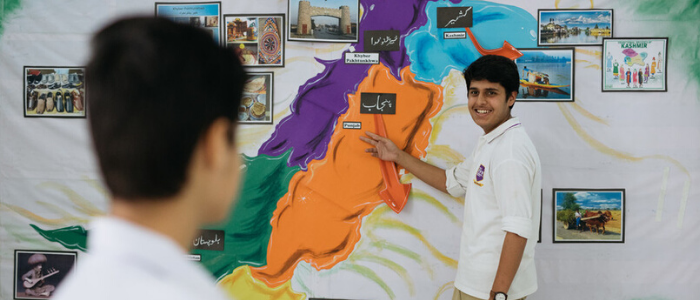I was introduced to Cambridge Global Perspectives as a subject three years ago at my school in Pakistan. I immediately saw its merits. Here was a subject that could easily build flexibility into an educational system that usually encourages students to choose one stream, or area of interest, and follow that through indefinitely.
It’s not only the subject matter that encourages stepping out of the box, but the way the grading is designed. We have made Cambridge Global Perspectives mandatory for our students, and we have seen a dramatic increase in critical thinking ability and the desire to know more about what is going on around them.
Living in Pakistan, it is common that students feel like their lives exist in isolation to those around the world, that the challenges we face here could not exist anywhere else. However, there was nothing more satisfying as a teacher than watching the ‘lightbulb moment’ – where the students studied concepts like poverty and environmental damage and realised that these are global issues, not issues unique to Pakistan.
Watching them understand that poverty is not accidental, but the outcome of various factors that are similar the world over was brilliant. You could see the understanding dawning on their faces, the slow acceptance of the fact that we are not alone, and that these struggles are something we share with citizens of every country and continent.
Understanding and tolerance
I personally feel that Cambridge Global Perspectives has the potential to blur boundaries, to help students develop an attitude of understanding and tolerance in these vital pre-university years. This attitude will help them once they head off to college and associate with their peers, who will hail from a multitude of backgrounds.
The subject is also a great way for students to hone their critical thinking and analytical skills, especially as these skills can then be applied to their other subjects. Once they are able to place themselves in a global – and not just local – context, they apply that broader understanding to other academic areas as well. This makes it much easier for a teacher to make the subjects student-led, and to foster an environment of enthusiastic learning in the classroom.
Learning the ethics and boundaries of academic research is also woven into the Cambridge Global Perspectives programme, and it has really helped my students write their comparative and argumentative essays for English language as well. The way that they understand topics for debate has matured, as their outlook has broadened to include national and global trends.
In summary, I think Global Perspectives is a subject that should be included in curricula all over the world, not only for its flexible and student-led approach to learning, but also because of its ability to blur the lines between subjects and between the students. In the 21st century, we should encourage our students to take part in global debates and understand global challenges. As teachers and educational leaders, we must give them the skills they will need as they interact and aspire to move beyond their local context.






